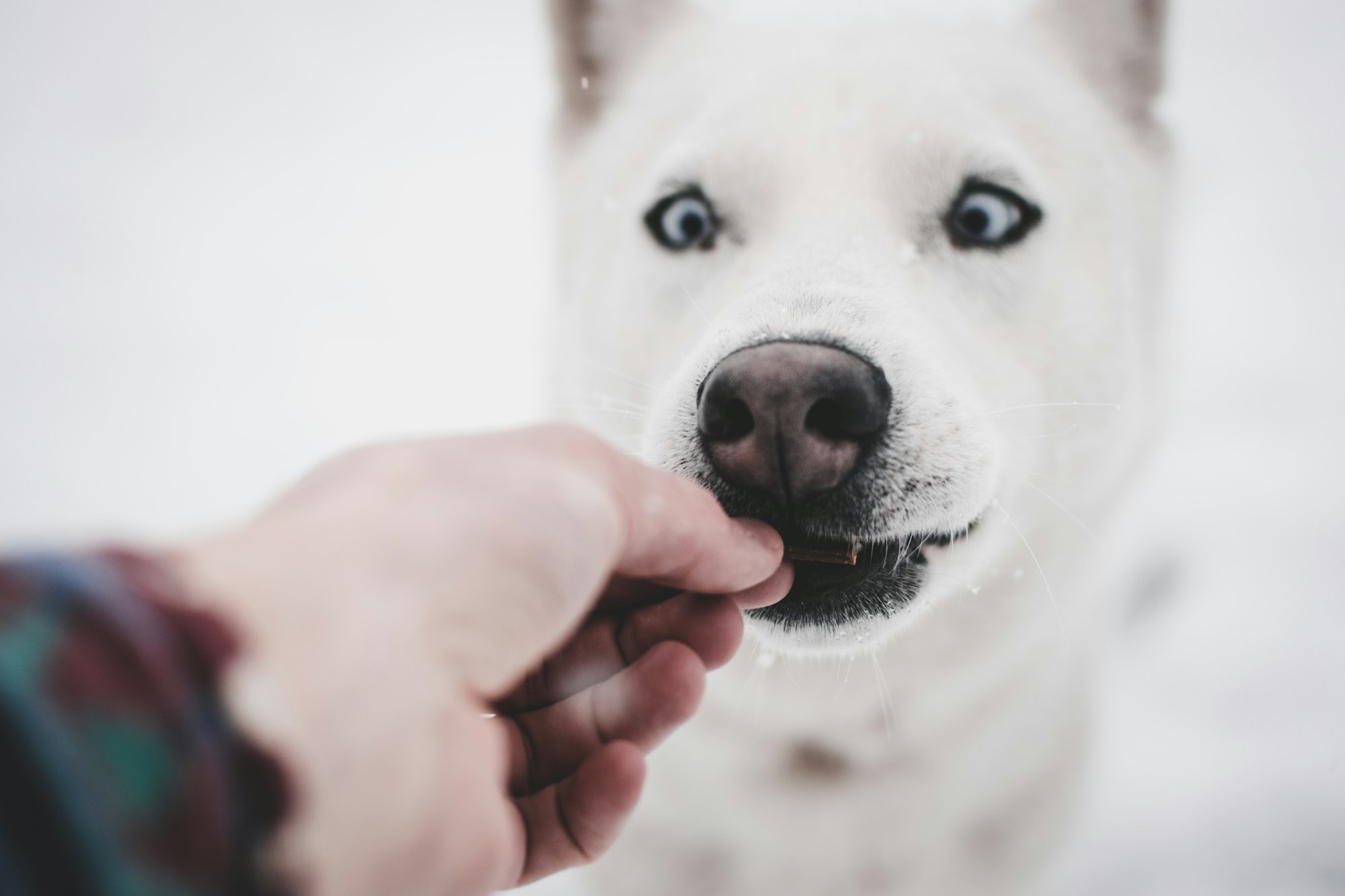Can dogs taste spicy food? And more importantly, do they actually like it? These questions arise when it comes to feeding our furry friends and considering what flavors they can enjoy.
Dogs have taste buds just like humans, but their sense of taste is different. The study conducted by Dr. Gary Beauchamp at the Monell Chemical Senses Center indicates that dogs have limited number of taste buds compared to humans.
They have fewer taste receptors for certain flavors, including those associated with spiciness. Therefore, while dogs can detect spicy flavors, they do not experience the same intensity or sensation as humans do. It is important to understand the potential risks and reactions that dogs may have if they consume spicy food and take appropriate measures to keep them safe.
Can Dogs Taste Spicy Food?

Dogs have the ability to taste spicy food, although their taste buds are not as sensitive to it as humans. Unlike us, dogs have different receptors in their taste buds, which makes their perception of spiciness less intense. However, it's worth noting that spicy foods can still cause discomfort or irritation in their mouths and digestive systems if they consume too much.
It's important to remember that each dog may have a different tolerance for spicy food, so reactions can vary depending on their individual sensitivity. As responsible dog owners, it is recommended to avoid feeding dogs spicy foods to prevent potential digestive issues.
What is the Sense of Taste in Dogs?
The sense of taste in dogs, also known as their gustatory perception, plays an important role in their overall experience with food. Dogs, just like humans, possess taste buds that are responsible for detecting different flavors. It's fascinating to note that dogs have approximately 1,700 taste buds, which is significantly fewer compared to humans who possess around 9,000 of these sensory receptors. These taste buds can be found on the surface of the tongue as well as other parts of the mouth.
Similar to humans, dogs have taste receptors that facilitate their ability to perceive sweet, sour, salty, and bitter flavors. However, it's important to understand that their sense of taste is not as refined as that of humans. Hence, their experience of flavors may not be exactly the same as ours. While dogs can certainly differentiate between various flavors, their sensitivity levels may not match those of humans.
It is worth mentioning that dogs, just like humans, can exhibit individual preferences when it comes to taste. Some dogs may enjoy certain flavors more than others, while others may have a distaste for particular tastes. This preference for flavors can vary from one dog to another.
Here's an intriguing fact: Dogs possess taste buds that are specifically sensitive to water. This unique characteristic enables them to gauge if the water they are consuming is fresh or if it contains any impurities.
Why are Dogs Sensitive to Spicy Food?
When it comes to spicy food, dogs are more sensitive because they lack taste receptors for capsaicin, the compound responsible for the burning sensation in spicy foods. While humans can feel heat from chili peppers, dogs do not have the same sensation. Instead, eating spicy food can cause gastrointestinal distress in dogs, leading to belly pain, tummy troubles, and potential health problems.
It is important to note that dogs have different reactions to spicy food. Some may show signs of discomfort such as excessive thirst or dry heaving, while others may not show any reaction at all. It is best to avoid feeding dogs spicy food as a precautionary measure.
Can Spicy Food Harm Dogs?
Spicy food can indeed harm dogs. Dogs, like humans, have taste buds that allow them to perceive different tastes, including spicy flavors. Their taste buds are less sensitive to certain flavors, such as sweet, and more sensitive to others, like bitter and umami. While dogs can taste spicy food, it is not recommended to feed them such food.
When dogs consume spicy food, it can cause various health problems and side effects. The chili powder or spices found in spicy food can create a burning sensation in their mouths and throat, which can be very uncomfortable for them. It may also cause gastrointestinal distress, leading to symptoms such as belly pain, tummy troubles, and even vomiting.
How to Prevent Dogs from Eating Spicy Food?
When it comes to ensuring the safety and well-being of your dog and preventing them from eating spicy food, there are several steps you can take.
- Store spicy food securely: To prevent your dog from accessing spicy food, make sure to store all such items in cabinets or areas that are out of reach for your furry friend.
- Monitor meal times: When preparing or serving meals that contain spicy ingredients, be cautious and keep your dog separate from the cooking and dining area. This will help prevent them from accidentally consuming spicy food.
- Educate family and guests: It is important to inform everyone in your household and any guests about the importance of not feeding spicy food to your dog. Some people may not be aware of the harmful effects certain foods can have on dogs.
- Check ingredient labels: Before giving any food to your dog, always read the ingredient labels carefully to ensure there are no spicy or potentially harmful ingredients included.
- Offer suitable alternatives: If you want to share a snack with your dog, choose dog-friendly treats or plain, unseasoned food options that are safe for them to consume.
- Seek veterinary advice if necessary: If your dog accidentally consumes spicy food or shows signs of distress after eating something spicy, it is important to consult your veterinarian for guidance and potential treatment.
By following these steps, you can effectively prevent dogs from eating spicy food, ensuring their well-being and happiness.

What are Safe and Healthy Treats for Dogs?
When it comes to choosing treats for dogs, it's important to prioritize their safety and health. Here are some safe and healthy options for your furry friend:
- Fruits and vegetables: Some fruits and vegetables are safe for dogs and can provide them with essential vitamins and minerals. Some examples include apples, bananas, carrots, and green beans.
- Lean meats: Dogs are omnivores and can benefit from the protein found in lean meats such as chicken, turkey, and beef. Avoid seasoning or spices that may be harmful to dogs.
- Peanut butter: Dogs often love the taste of peanut butter, and it can be a healthy treat when given in moderation. Look for natural peanut butter without any added sugars or artificial sweeteners.
- Boiled eggs: Eggs are a great source of protein and can be given to dogs as a treat. Make sure they are fully cooked to avoid any risk of salmonella.
- Chew toys and dental treats: Treats designed to promote dental health can be a great option for dogs. Look for products that are specifically formulated to clean teeth and freshen breath.
Remember, every dog is different, so it's important to consider their individual dietary needs and consult with a veterinarian if you have any concerns or questions. By choosing safe and healthy treats, you can ensure that your dog enjoys a nutritious and delicious snack.
Facts About Dogs and Spicy Food:
- ✅ Dogs have an average of 1,700 taste buds in their mouth, while humans have around 9,000 taste buds.
- ✅ Dogs have taste receptors for salty, bitter, sour, and sweet tastes, but they have less taste sensitivity than humans.
- ✅ Dogs have a special affinity for sweet flavors, likely due to their omnivorous ancestors eating lots of fruit in the wild.
- ✅ Dogs do not like sour or bitter-tasting things, which explains why most dogs do not like spicy foods.
- ✅ Dogs can feel the heat from peppers and spicy foods much more intensely than humans.

Frequently Asked Questions
Can dogs taste spicy foods?
According to the reference data, dogs have taste receptors for salty, bitter, sour, and sweet tastes. However, dogs have less taste sensitivity than humans and their taste buds are located towards the back of their tongue. So while dogs can detect spicy flavors, they may not experience the same level of spiciness as humans do.
Do dogs like the taste of spicy foods?
No, most dogs do not enjoy the taste of spicy foods. Dogs have a special affinity for sweet flavors, but they have less of an affinity for salt, sour, or bitter tastes. Spicy foods usually fall into the sour or bitter categories, which explains why dogs generally do not like them.
Can spicy foods cause gastrointestinal upset in dogs?
Yes, spicy foods can cause gastrointestinal distress in dogs. Consumption of spicy foods can lead to symptoms such as stomach pain, diarrhea, gas, and excessive thirst. It is best to avoid feeding spicy foods to dogs and provide them with a healthy, balanced diet instead.
Are spicy foods toxic to dogs?
No, spicy foods are not inherently toxic to dogs. However, certain spices or ingredients used in spicy foods may be harmful to dogs. It is important to be aware of toxic ingredients such as onions, garlic, and certain artificial flavorings that are often found in spicy foods.
Are toy breed dogs more sensitive to spicy flavors?
Yes, toy breed dogs are generally more sensitive to spicy flavors. Dogs have fewer taste buds than humans, but toy breed dogs have even fewer taste buds compared to larger breeds. This means that toy breeds may experience the spiciness of food more intensely and may be more likely to have a negative reaction to spicy foods.
What should I do if my dog eats something spicy?
If your dog consumes something spicy, it is important to monitor them closely for any signs of discomfort or distress. If your dog exhibits symptoms such as coughing, drooling, pawing at their face, or dry heaving, it is recommended to call a veterinarian for guidance. They can help determine the best course of treatment for your beloved pooch.






